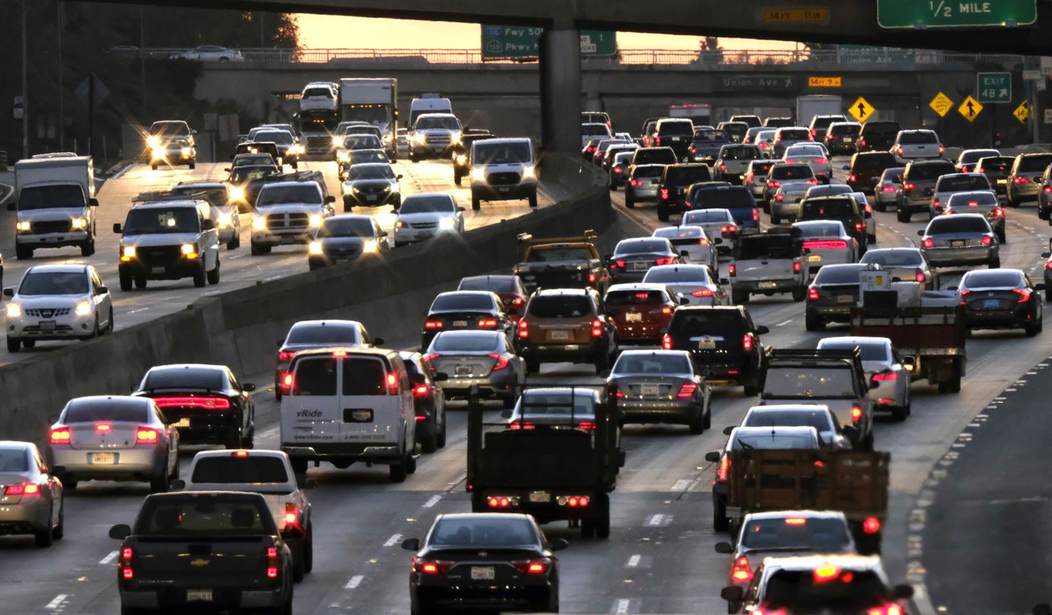Governor Gavin Newsom has signed into law SB-339, the Road Usage Charge Pilot Program (RUC). The RUC Pilot Program has existed since 2015, but SB-339 expands and extends it through 2027. This time, rather than simply tracking volunteer California drivers and sending them mock bills for miles driven, this bill includes the implementation of an actual tax collection system with participants being reimbursed with an estimated amount in gas taxes used over the program’s timespan.
AB-339’s author California State Senator Scott Wiener (D-San Fransico) is quick to point out in a press release that participation in the RUC “is entirely voluntary — no one will be forced to participate. The pilot program will allow state agencies to evaluate and refine the approach for future consideration of broader application.”
And it’s that “broader application” that has many Californians worried.
While proponents claim the RUC program is simply a “pilot program” and not a permanent one, opponents ask when the government has ever given up the collection of a tax once it has begun? Um, never, which brings us back to that “broader application” bit and why the program was extended and expanded in the first place.
Recommended: Democratic Incrementalism Makes Pandemic Vote-By-Mail Ballots Permanent
“This extension is a crucial step and will help better equip the state with the necessary information regarding the potential for a road charge system to replace the gas tax to fund transportation infrastructure and maintenance,” said Wiener in a statement to Stateline. “We need to plan for a future without gasoline consumption, and we also need to increase our funding for transportation infrastructure.”
And there we have it; the RUC is simply the first step in a plan to completely replace combustible engines and the taxes they bring to Sacramento.
Like all inefficient leftist leviathans, Sacramento runs on the collection of taxes—millions and millions of tax dollars—and those taxes are decreasing. “California’s progress toward developing and implementing a mileage-based financing mechanism,” reads AB-339, “has been heightened with the issuance of Executive Order No. N-79-20, in September 2020, which requires a complete transition to a fully zero-emission new vehicle state auto market by 2035.”
Newsom’s draconian COVID-19 pandemic efforts and years of poor state management coupled with the rush to get rid of all fossil-fuel-guzzling vehicles have created quite the problem for the Democrats since less gasoline usage means fewer gas taxes collected. “A recent analysis by the Mineta Transportation Institute,” states AB-339, “suggests that increasing zero-emission vehicle deployment and reducing vehicle miles traveled could reduce transportation revenues to the state by as much as $1 billion annually as early as 2025, and by as much as $2 billion annually as early as 2030.”
Well, now the rush makes sense. The left is desperate to replace lost revenue, but they’re doing it under the guise of green energy and “equity.” But are everyday Californians really being helped with this new taxation or is it yet another stealthy way for Sacramento Democrats to raise money?
“Commuting is a necessity in my district and a per-mile tax would be a huge blow to middle-class families,” California Senate minority leader Scott Wilk (R-Santa Clarita) posted on Facebook. “Californians already pay the highest gas prices in the U.S., why make life more unbearable?”
In his press release, Wiener claimed that a “road charge program would allow for” equity between “wealthier drivers” and “low-income drivers” by having funding “based on how much a person is using the road, rather than how much gas they purchase, more equitably distributing the costs of road and transportation maintenance.” However, Wiener’s utopian equity plan fails to take into account that California’s poor and middle-class drivers tend to live further from their work and schools or they may actually drive for a living, unlike the so-called “wealthier drivers” do. How exactly does forcing poor and middle-class drivers to pay a larger tax bill than “wealthier” drivers increase “equity” exactly?
Remember Wiener’s “broader application”? Well, we’ve found it. This tax will eventually be broadly applied to all Californians who commute for work or who drive for work. These drivers are certainly not Wiener’s “wealthier drivers” who are switching to more expensive electric vehicles due to “Newsom’s recent executive order banning the sale of new internal combustion engine vehicles by 2035.” These drivers are everyday Californians and equity has nothing to do with it.










Join the conversation as a VIP Member